Exclusive
Dasukigate: How a threesome makes history’s third biggest heist
Published
10 years agoon
By
Olu Emmanuel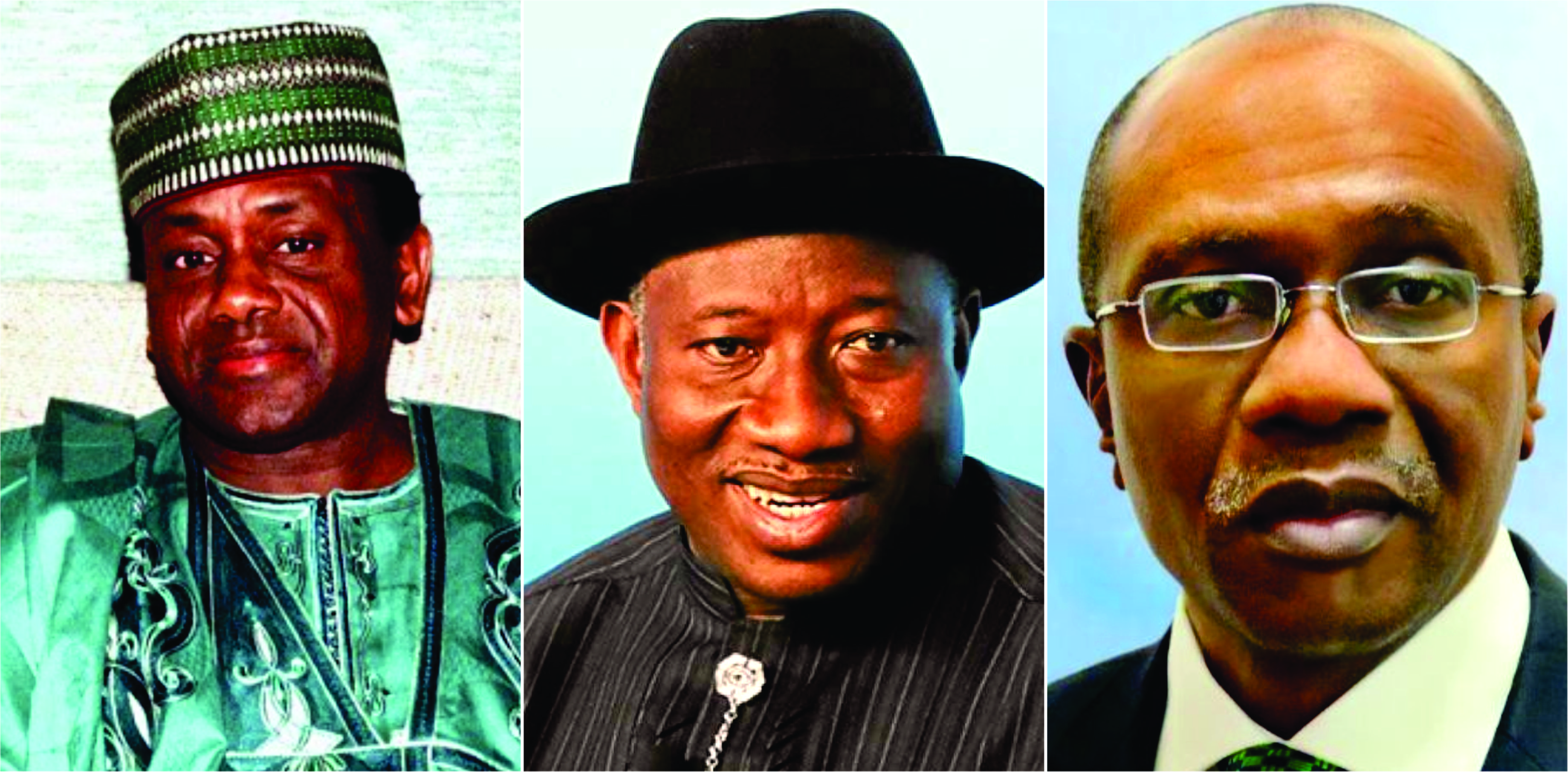
It takes just one ace and three he-men to heist a central bank. But the stunt is never worth the risk
By SEGUN ELIJAH
“ACT normal, give me $4,000. Don’t be a hero. Your job will fire you if you don’t cooperate. Hurry up.” That was all in the note a rogue in his 30s passed to rob Capital One Bank, New Jersey, in the US. about two years ago, according to Bank Notes, a book by Ken Harbala.
It’s only in Nigeria you still see the Hollywood 44-minutes kind of bank holdups. To rob a commercial bank elsewhere now is a day’s job thanks to note-passing. Plus a hood, and some wide-rimmed dark goggles.
Central banks’ vaults are no more impregnable. Even in the world’s biggest central bank heists, notes have been more powerful than a howitzer. With a note, the late Saddam Hussein pulled out $1 billion in cash from Iraq’s central bank on the eve of the U.S. invasion in 2003. The World Finance magazine, in 2014, ranked it history’s biggest heist.
Nigeria’s late dictator Gen. Sani Abacha, however, made a bigger haul: $2 billion from the central bank of Nigeria. No shot fired. Just notes. A 42-page document the Asset Forfeiture and Money Laundering office of the US Department of Justice recently tendered at the District Court of Columbia confirmed this, according to Sahara Reporters.
Granted all that happened in the military era. Yet notes, even in democracy, work faster when a government goes haywire, and wants to clean out its foreign reserves. Like the last administration did in Nigeria.
Between November 2014 and February 2015, former President Goodluck Jonathan’s administration, according to reports, trucked out $336 million cash from the CBN. That amount beats World Finance’s N0. 3 biggest bank heist in 2007, which was just $272 million carted out of the Dar es Salam Bank in Baghdad.
ALSO SEE: Dasukigate: People who shared arms money are murderers — Iloh
The Jonathan administration’s plunder also takes the prize as Nigeria’s second biggest CBN lift. And just a memo– Request for Fund for Special Services, referenced NSA/366/S–fired off from the ex-NSA Sambo Dasuki’s office, approved by Jonathan, pulled off the first of the two draw downs. “Further to our discussion, you are pleased requested to provide the sum of forty-seven million United States Dollars (USD47, 000,000.00) cash out of the Ten Billion Naira (N10, 000,000,000.00) and the balance in Euro to this office for special services,” the memo, which Premium Times obtained, stated.
The second withdrawal was authorized with another note. This one, dated February 25, 2015, came from the Nigeria Petroleum Investment Management Services, under the Nigeria National Petroleum Corporation. It ordered the CBN to fork out 289.2 million greenbacks. “Upon receipt of this mandate, please pay urgently the under-listed beneficiary the cash amount indicated,” the memo instructed. “Please debit CBN/JVCC Foreign Account No. 000000011658360 with the JP Morgan Chase, New York… and advise as soon as the payment is made.”
It was that easy to make a hole in Nigeria’s dollar reserves. According to a CBN ex-governor, Prof. Charles Soludo, the apex bank became the ATM of the Jonathan’s presidency. “I don’t know any other country where such is tolerated, except perhaps what I watched in a movie about Idi Amin and his governor of central bank,” Soludo told The Interview.
Presidents plundering the foreign reserves has happened twice, in the last 20 years, in Nigeria. So it’s already a slice of life. The stunt is mostly pulled off by a triune: the president, the CBN governor, and the national security adviser. In the synergy, the president nods an approval, the NSA yarns the cover story, and the CBN can’t help throwing the vault open.
Under Abacha then, the NSA was Ismaila Gwarzo. His gig, in the $2 billion robbery, was to shuttle between the presidency and the CBN headed by Paul Ogwuma. The US Justice Department detailed how Gwarzo regularly sent memos to the president, requesting for dollars, pound sterling, and naira to meet some “national security” emergencies. Abacha approved of no fewer than 60 of such memos. And as soon as the CBN received them, it dispatched bales of cash, traveller’s cheques, and a raft of wire transfers.
The plan was almost similar in the Jonathan administration. Except that there was a spoilsport in the threesome. The CBN governor then, Sanusi Lamido Sanusi, was a loudmouth blowing the whistle on the NNPC, the honeypot of his boss, which failed to remit $20 billion oil revenue to the bank. And that didn’t sit well with the wheeler-dealers in that government. Jonathan’s schemers probably believed Sanusi was going to be the dead hand of their machinations. Moreover, this CBN governor had no respect for hierarchy. So he was eased out in 2013, some months to the end of his first tenure. And Godwin Emefiele came on in.
ALSO SEE: X-raying Buhari’s crisis of inter-governmental distrust
Those that knew him when he was Zenith bank chief say Emefiele respects pecking orders. To boot, butter won’t melt in his mouth. Until the National Assembly draws him out to have his take on the economy, Emefiele hardly bares his mind. So he fitted the billfor administration’s game plan.
As for the cover story, ex-NSA Sambo Dasuki had enough to tell in 2014: the northeast counterinsurgency campaign that was heading south; the 2015 election security; and every other phantom national security threat. Especially those that wouldn’t allow his boss to get a re-election.
By August 2014, Emefiele, obeying superior orders, had already prepared an intervention fund, outside of the budget, to meet the Special Service needs Dasuki created. The second withdrawal was officially said to have been handed out to the National Intelligence Agency. Dasuki himself, however, confessed to the EFCC probing the $2.1 billion arms vote that some of the money was shunted to bankroll PDP’s campaign for Jonathan. About N2 billion was given to Raymond Dokpesi, a PDP stalwart and owner of the Daar Communications.
Nduka Obaigbena, publisher of ThisDay and chairman of the Newspaper Proprietors Association of Nigeria, also got N670 million as hush money for 12 publishers. Sokoto’s former governor, Attahiru Bafarawa, was said to have got N4.6 billion for spiritual purposes for the presidential election.
For all this looting of the nation’s forex reserves, many Nigerians think Emefiele should get it in the neck. Tunde Bakare, The Latter Rain pastor and former sidekick of President Muhammadu Buhari, said Emefiele’s excuse of obeying superior orders from Jonathan is lame. “How can a letter of barely two paragraphs, addressed to the current CBN governor, by the ex-NSA become the authority to incur expenditure leading to cash flow of $37m and several million euro?” He asked his congregation during his State of the Nation address on January 11. “In decent climes, the CBN governor cannot continue in office while the NSA is accounting for his alleged offences.”
Elsewhere, really, a CBN governor is never appointed the way Emefiele or his predecessor was. It was more like a favour. For 26 years, he had worked in the banking industry, mastering the rules of loyalty, and all the bullish tricks in the book, and wringing out as much profit as possible for his employers. So when Jonathan passed over the four CBN deputy governors, and plucked Emefiele from Zenith Bank in 2013 to head the regulatory body, he made his man a gatecrasher. Switching gear then became difficult for the CBN governor.
Many are unhappy about this. “A situation where we make commercial bankers to head the deputy governors is a thing to be looked into,” Joseph Sanusi, CBN’s ex-governor between 1999 and 2004, told his audience at the Financial Training Institution Centre dinner in October. “We are unhappy that the CBN has not deemed it fit to allow experienced and qualified deputy governors to be appointed governor.”
All Sanusi will see looking into the manner of appointment is the need for loyalty. And that comes with a price: loss of independence. Section 1, subsection 3 of the CBN Act 2007 states, in part, “the Bank shall be an independent body in the discharge of its functions”. Maybe so on paper. If it were practicable, Emefiele could have shredded the Aso Rock memos ordering him to open the forex coffers to Dasuki.
In any case, the CBN governor can hardly be innocent. At least on one count: Emefiele shipped out about N67 billion for an intervention. The Money Laundering Act forbids cash withdrawal above N5 million by an individual, and N10 million by a corporate.
ALSO SEE: Buhari fighting insurgency with the arms I bought – Jonathan
There’s a lot of petrol-dollars flying out there now–courtesy of Jonathan, Dasuki, and Emefiele. Apart from the $330 million spirited out of the CBN in the historic bank raid, there’s also the $2.1 billion arms vote missing on the book–allegedly lifted out of the apex bank to fund PDP’s campaign in 2015. By Soludo’s account, about N30 trillion was squandered by the Jonathan government. It has always been like that– so much money to throw around after a successful heist.
There’s, however, a catch, which takes the zing out of the exploit: the thieves have mostly been caught. History proves that. Saddam’s loot was intercepted by the American troops in 2003. They recovered $650m hidden in his palace. Most of the $282 million stolen from Dar Es Salaam Bank was also recovered. Switzerland and the US have been helping Nigeria track and repatriate the $2 billion Abacha’s stash–the CBN haul alone. (Abacha’s loot abroad is over $5 billion, including bribes, and other assets.) Looking at how the APC government of President Muhammadu Buhari is carrying on, Dasuki and his co-travellers
in the 2015 CBN roll may have been unlucky, too, with their booty.
For now, only Dasuki, of the three likely perps, seems to have been left holding the baby. And Buhari has determined to squeeze the money out of the scapegoat. But some spark plugs amongst the citizens are raising so much hell the president may have to frisk Jonathan and Emefiele, too. The Socio-Economic Rights and Accountability Project (SERAP) has called on the EFCC and ICPC for a joint probe of the CBN. By allowing excessive withdrawals by Dasuki and Okonjo-Iweala, said SERAP, the apex bank has helped to fuel corruption in the arms purchase budget. “The CBN’s longstanding complicity in money laundering also explains why it has failed to take action against domestic banks that are facilitating deposits of stolen public funds by Politically Exposed Persons,” SERAP’s executive director, Mumuni Adetokunbo, said in a January petition to the anti-graft agencies.
There’s the human angle to the heist, too. And rights lawyer Femi Falana has taken it as far as the International Criminal Court. The chances that the world’s prosecutors would come for these central bank vault raiders are slim. Falana, a regular at the world’s criminal court, may, however, make enough noise to bring the ICC. The Dasuki gang may not come back unscathed.
You may like
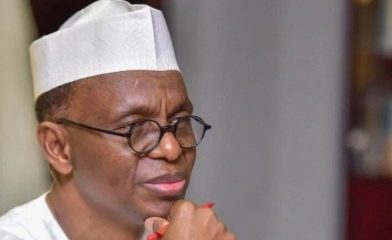

“Tinubu Will Finish Third in 2027” — El-Rufai
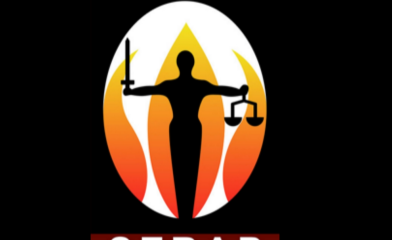

‘Account for security votes spending, invite EFCC, ICPC’, SERAP tells 36 governors
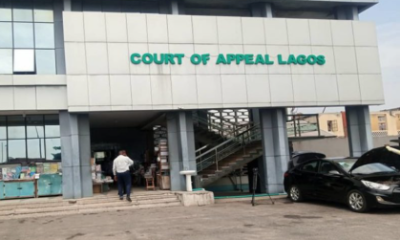

Appeal Court nullifies Emefiele’s asset forfeiture, Orders retrial


Naira gains 1.28% in official market in May amid oil price risks, currency volatility
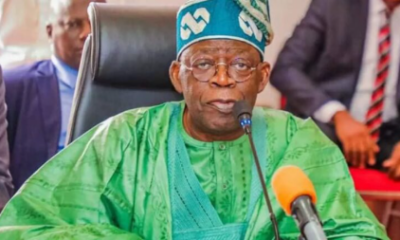

Tinubu: Diaspora APC chieftain tasks local banks on reforms


Alleged corruption: EFCC witness details wow Emefiele allegedly received $17.1 million in cash
Trending

 Health5 days ago
Health5 days agoDeclassified CIA memo explored concealing mind-control drugs in vaccines

 Entertainment7 days ago
Entertainment7 days agoSimi addresses resurfaced 2012 tweets amid online backlash

 Crime6 days ago
Crime6 days agoSenior police officers faces retirement after Disu’s appointment as acting IGP

 Education1 week ago
Education1 week agoPeter Obi urges JAMB to address registration challenges ahead of exams

 Health1 week ago
Health1 week agoNAFDAC issues alert on suspected revalidated SMA Gold infant formula

 Comments and Issues6 days ago
Comments and Issues6 days ago20 Critical Fixes to Save Nigeria’s Democracy from Electoral Fraud

 Football7 days ago
Football7 days agoMartínez ruled out of Everton clash with calf injury

 Latest6 days ago
Latest6 days agoICPC yet to respond to El-Rufai’s bail request as arraignment date looms

